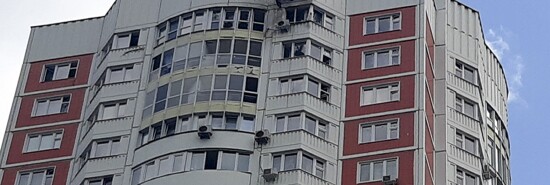
Moscow and Kyiv attacks underline Ukraine war’s escalation
Tom Rogan
Video Embed
Reciprocal drone attacks on Moscow and Kyiv underline the present intractability of the war in Ukraine on Monday. Neither Vladimir Putin nor Volodymyr Zelensky are willing to make concessions toward peace. Instead, the war’s trajectory is set only for escalation.
The attacks on Moscow caused minor damage to an apartment building, with no casualties. In contrast, one Ukrainian civilian was killed in the Kyiv attacks. Still, both Ukraine’s and Russia’s deliberate targeting of civilian infrastructure is notable. While Russia has targeted civilians since shortly after the start of the war in February 2022 (and, as in Syria, views Ukrainian civilian targets as strategically valuable), Ukraine has generally avoided doing so. A notable exception was the Ukrainian assassination of Russian nationalist Darya Dugina outside Moscow last August.
DEMOCRATS WORRY THIRD-PARTY CANDIDATE WILL HAND 2024 ELECTION TO REPUBLICANS
Regardless, the strikes make clear that there is little appetite for compromise. Ukraine has the strategic initiative on the battlefield, dangling the near-term commencement of a counteroffensive alongside its sustainable ability to absorb Russian missile and drone strikes. By attacking Moscow, Zelensky’s government hopes to undermine Russian confidence in Putin’s leadership and his insistence that the war is progressing favorably. Perhaps reflecting this concern, Putin is promising to strengthen Moscow’s air defense network to prevent future drone attacks. At the same time, the Kremlin is escalating its rhetoric in response to the attack.
Putin’s Chechen strongman Ramzan Kadyrov is demanding a declaration of martial law in Russia and total war against Ukraine. He claims the “satanist” attacks show that “there are no military and politicians in Ukraine — only terrorists.” More nuanced, Putin is warning of further Ukrainian plots. He claimed on Monday that Ukraine wants to use a radioactive “dirty bomb” in relation to the Zaporizhzhia nuclear plant. That plant is under Russian occupation. This nuclear-related threat follows Putin’s dangling of nuclear deployments to Belarus. Putin wants to exploit varied U.S.-European tolerances for nuclear escalation in the hope that doing so will see the West reduce its military support for Ukraine. Putin will also have taken solace from Beijing’s unwillingness to pressure him directly to avoid nuclear threats.
Putin’s gambit may yet have some success.
The attacks in Moscow have further underlined the U.S.-U.K. disagreement over how far to support Ukraine’s war effort. The U.K. foreign secretary declared that Ukraine has “the right to project force beyond its borders to undermine Russia’s ability to project force into Ukraine itself.” In contrast, a White House national security council spokesperson stated that “as a general matter, we do not support attacks inside of Russia.” If Putin can exploit these fissures, he can at least marginally divide the West on Ukraine.
But Putin’s main obstacle remains the most familiar one: Ukraine remains resolutely committed to its fight.
